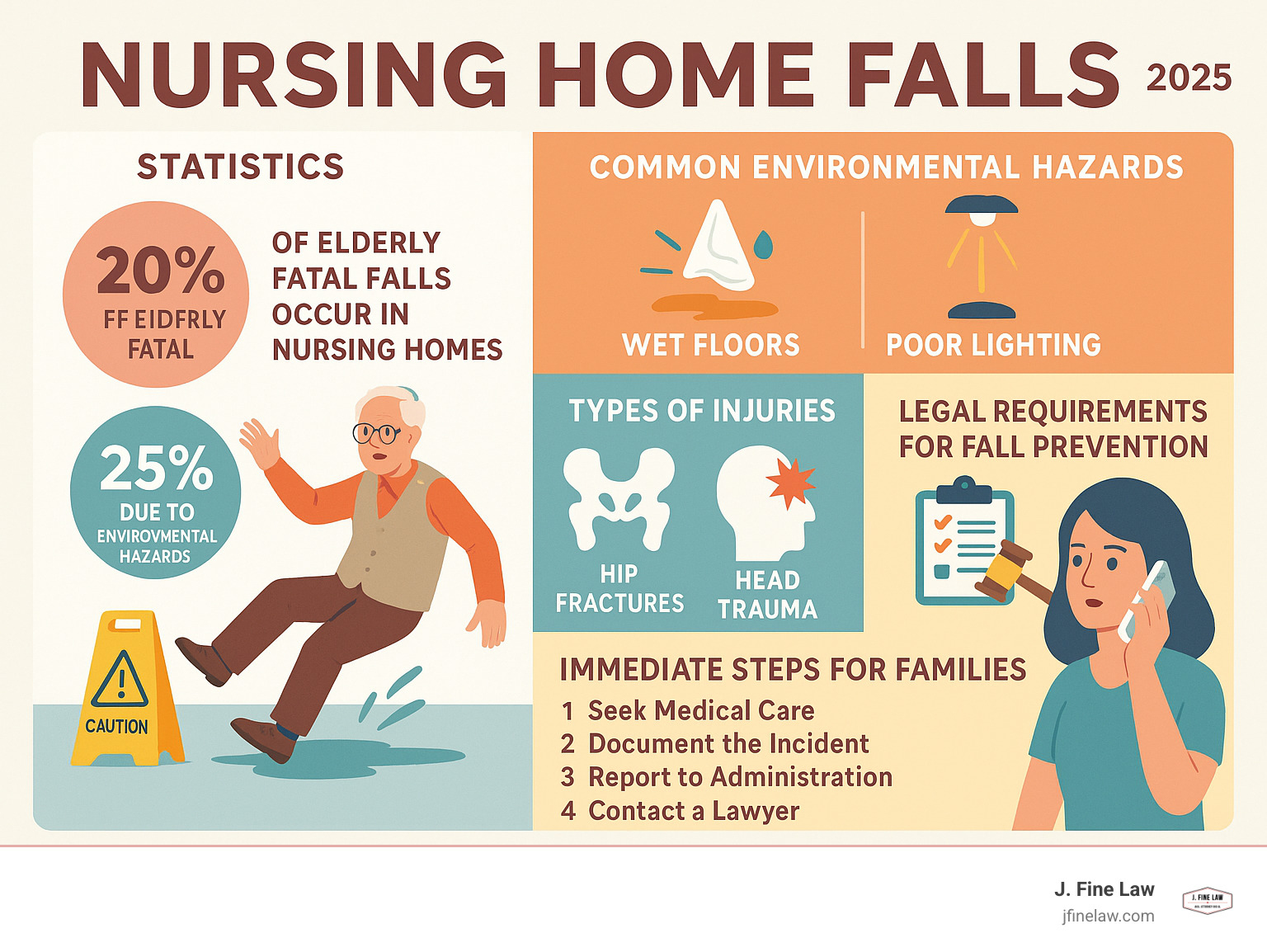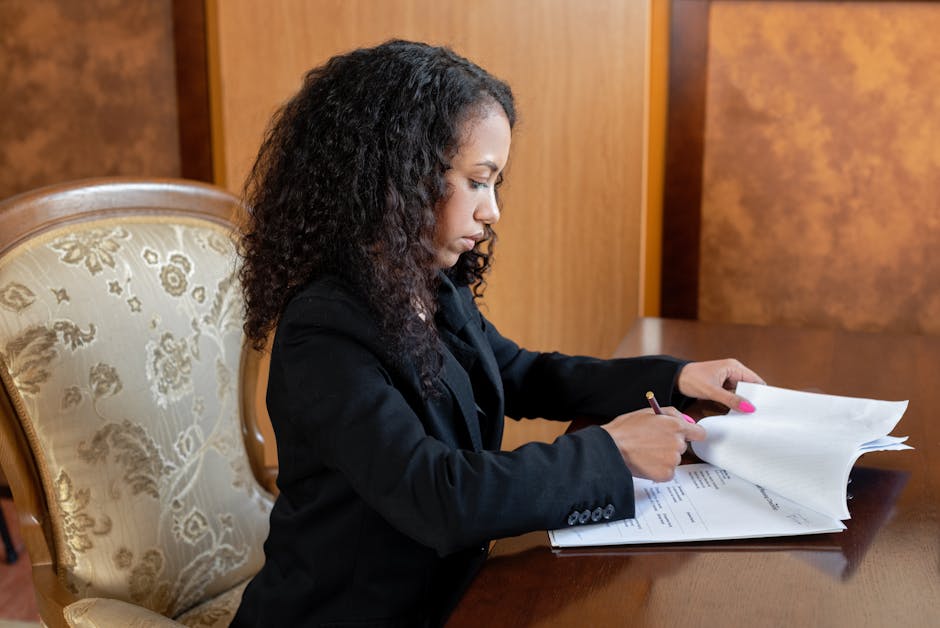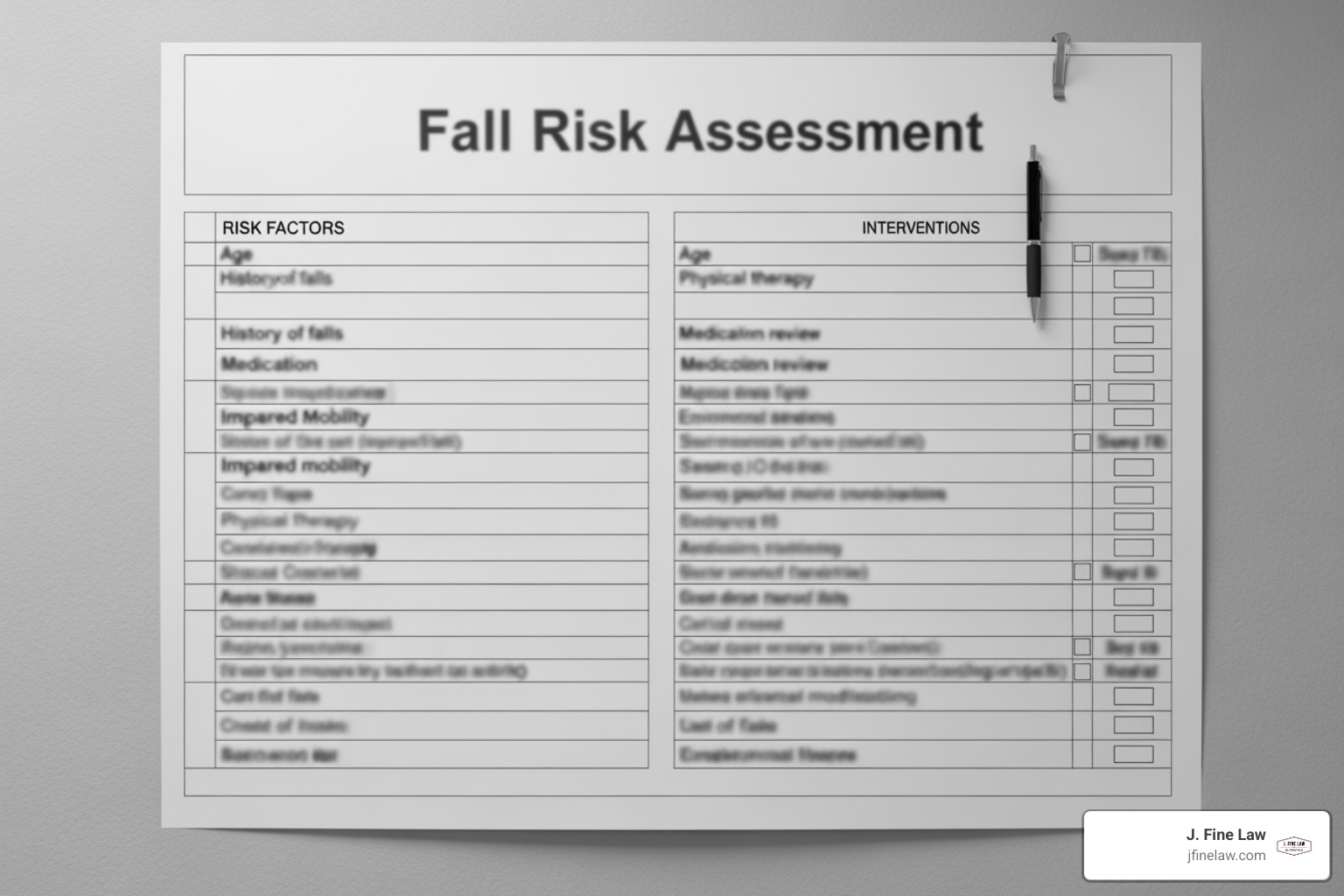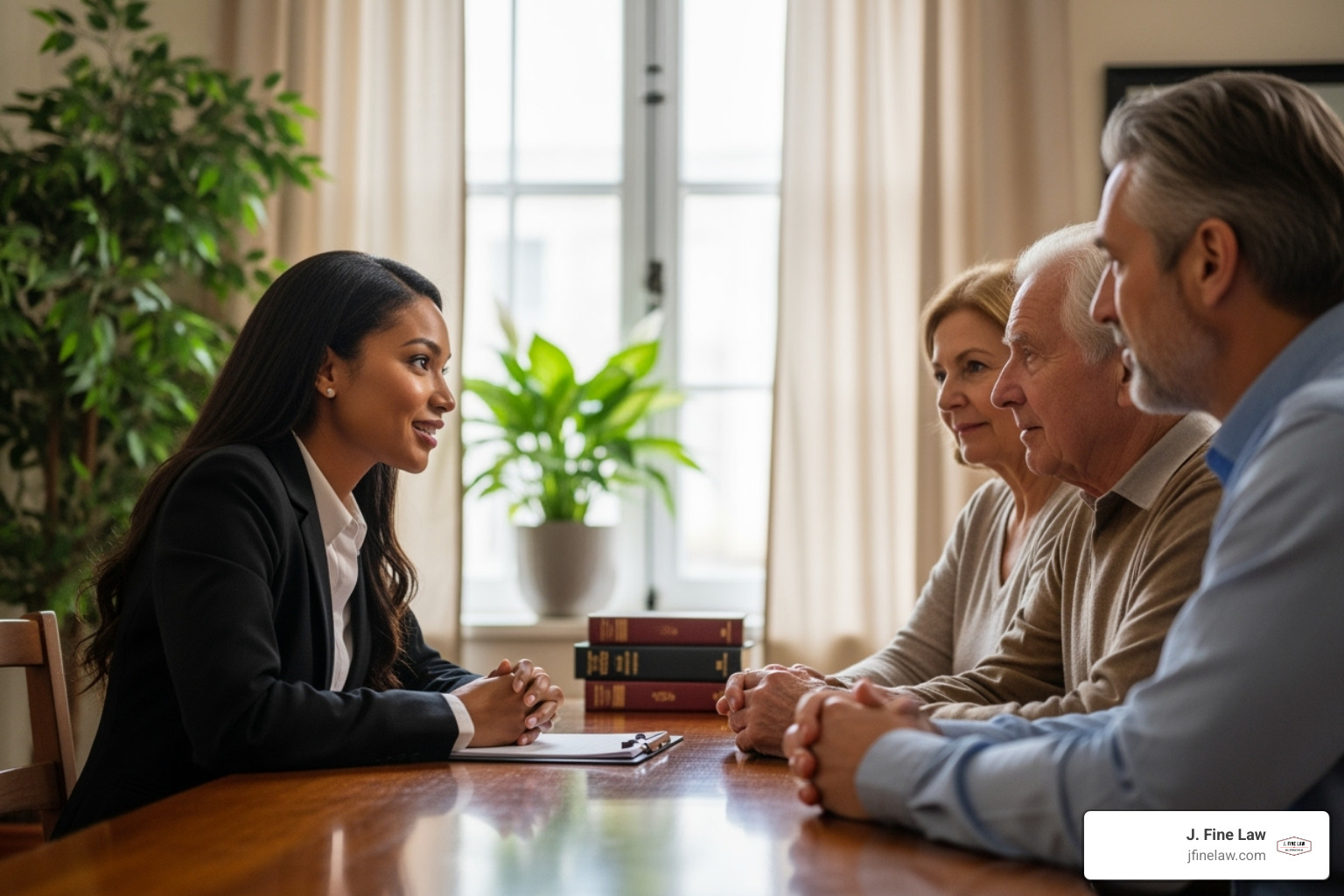The Hidden Dangers: Understanding the Epidemic of Falls in Philadelphia Nursing Homes
When you need a nursing home slip and fall lawyer philadelphia, you’re likely facing a devastating situation. Here’s what you need to know immediately:
Top Philadelphia Nursing Home Fall Lawyers:
- J. Fine Law Group – 25+ years experience, Super Lawyer nominee
- Specialized expertise in nursing home negligence cases
- Free consultations available for fall injury cases
- No fees unless you win – contingency basis only
Immediate Steps After a Nursing Home Fall:
- Seek emergency medical care for your loved one
- Document injuries with photographs
- Report to facility administration in writing
- Contact Pennsylvania Department of Aging at 1-800-490-8505
- Call a specialized lawyer within 48 hours
Falls in Philadelphia nursing homes are an epidemic. Despite only 5% of seniors living in these facilities, 20% of all fatal elderly falls occur there. The average 100-bed facility reports up to 200 falls annually. These incidents are often severe, with 1,800 residents dying each year from fall-related injuries like hip fractures and traumatic brain injuries. Tragically, 25% of these falls stem from preventable hazards at the facility, leading not only to physical harm but also a debilitating fear of falling that causes social isolation and a rapid decline in health.
With over 25 years of experience and recognition as a ten-time Pennsylvania Super Lawyer nominee, I’m Jason Fine. I have dedicated my career to holding negligent nursing homes accountable. As a nursing home slip and fall lawyer philadelphia families trust, I have a track record of top verdicts in Pennsylvania and understand the complex evidence needed to win these challenging cases.
Important nursing home slip and fall lawyer philadelphia terms:
What Constitutes Nursing Home Negligence Leading to a Fall?
Nursing home negligence occurs when a facility fails to provide the standard of care required to keep residents safe, leading to a fall. This breach of duty can take many forms, including failing to implement fall prevention protocols, providing inadequate supervision, negligent hiring and training of staff, chronic understaffing, and failing to follow a resident’s individualized care plan. When these failures result in injury, the facility can be held legally responsible. For more information on the broader topic of nursing home negligence and abuse, you can visit our dedicated page: More info about nursing home abuse.
Common Causes of Slips and Falls in Philadelphia Nursing Homes
Falls are often caused by identifiable and preventable factors. Common causes we see as a nursing home slip and fall lawyer philadelphia include:
- Environmental Hazards: These account for 25% of falls and include wet floors, poor lighting, cluttered hallways, improper bed height, and broken or missing handrails.
- Medication Errors: Incorrect dosages or medications can cause dizziness and confusion, increasing fall risk.
- Dehydration and Malnutrition: Weakness and dizziness from inadequate food and fluid intake are common contributors.
- Failure to Assist: Understaffing often leads to residents not receiving timely help with mobility or toileting, prompting them to move unsafely on their own.
- Improper Use of Restraints or Assistive Devices: Using restraints improperly or providing faulty equipment like walkers and wheelchairs can directly cause falls.
- Neglecting a Resident’s Changing Condition: Failing to update a care plan when a resident’s health declines puts them at greater risk.
Each of these causes represents a potential failure by the nursing home. For more details on various types of slip and fall accidents, you can visit: More info about slip and fall accidents.
Proving Negligence: How a Nursing Home Slip and Fall Lawyer in Philadelphia Builds Your Case
Building a strong nursing home negligence case requires proving the facility violated its legal duty to protect your loved one. As a nursing home slip and fall lawyer philadelphia families trust, we steer the complex federal and state regulations to establish liability.
The foundation of a successful case is showing the facility breached its standard of care, directly causing the fall and subsequent injuries. This involves a methodical approach to evidence and a deep understanding of laws like the federal Omnibus Budget Reconciliation Act of 1987 (OBRA ’87) and specific Pennsylvania regulations.
At J. Fine Law, our 98% success rate is built on combining this legal precision with genuine compassion for what your family is going through. For more information on how we handle personal injury cases, please see: More info about personal injury cases.
The Legal Duty to Prevent Falls and How to Prove It Was Breached
Pennsylvania nursing homes have a clear legal duty to prevent falls. Federal regulations (42 CFR § 483.25(d)) mandate that facilities must keep the environment “as free of accident hazards as possible” and provide adequate supervision and assistance. The Pennsylvania Nursing Home Resident Bill of Rights further solidifies these protections. You can read the full details at: Pennsylvania Nursing Home Resident Bill of Rights.
To prove a breach of this duty, we focus on key documents. Every facility must conduct fall risk assessments and create individualized care plans with specific interventions, such as scheduled bathroom assistance or bed alarms.
Our job is to show that the facility knew the risk (documented in their own assessments), had a plan to prevent it, but failed to follow through. This failure to act on known information is the core of a negligence claim.
Gathering Critical Evidence for Your Claim
A successful claim depends on gathering the right evidence quickly. As your nursing home slip and fall lawyers in philadelphia, we use legal channels to secure:
- Medical Records: The complete chart, including nursing notes and medication logs, to establish health status and fall risk.
- Incident Reports: The facility’s official account of the fall, which contains key facts about the event.
- Staffing Records: Payroll and scheduling documents to determine if understaffing was a contributing factor.
- Witness Statements: Testimony from other residents, visitors, or staff who saw what happened.
- Photographs and Video: Visual evidence of the hazardous scene or the fall itself is incredibly powerful.
- Expert Testimony: Opinions from medical and long-term care experts to confirm that the standard of care was breached.
For more specific information about Philadelphia slip and fall injuries, visit: More info about Philadelphia slip and fall injuries.
Navigating Pennsylvania’s Laws: Statute of Limitations and Damages
Understanding Pennsylvania’s specific laws is crucial. Key rules that affect your case include:
- Statute of Limitations: You generally have two years from the date of the injury to file a lawsuit under 42 Pa. Cons. Stat. § 5524(2). It is critical to contact a lawyer well before this deadline expires.
- Modified Comparative Negligence: In Pennsylvania, you can recover damages as long as your loved one is found 50% or less at fault for the fall. We are experienced in fighting attempts by nursing homes to unfairly blame the resident.
- Recoverable Damages: Compensation can include economic damages (medical bills, rehabilitation costs), non-economic damages (pain and suffering, loss of enjoyment of life), and in some cases, punitive damages to punish reckless conduct.
- Wrongful Death and Survival Actions: If a fall leads to a resident’s death, specific legal claims can be filed to compensate the family for their losses and the deceased’s suffering.
Taking the Next Step: Securing Justice for Your Loved One
After a loved one’s fall in a nursing home, you may feel overwhelmed. Taking action is not just about compensation; it’s about holding the facility accountable and protecting other residents from similar harm.
At J. Fine Law, we help you understand your options. We offer free, no-obligation consultations to provide clear answers about the path forward, whether it leads to a settlement or trial. You don’t have to face this alone.
What to Do Immediately After a Nursing Home Fall
The steps you take immediately after a fall are critical for your loved one’s health and your legal rights.
- Prioritize Medical Care: Insist on a thorough medical evaluation, even if injuries seem minor. Document all care received.
- Report in Writing: Formally report the fall to the nursing home administration to create an official record.
- Document the Scene: Take clear photos of your loved one’s injuries and the location where the fall occurred, capturing any hazards like wet floors or clutter.
- Keep Detailed Notes: Write down everything you observe and every conversation you have with staff and doctors.
- Do Not Sign Anything: Avoid signing any documents from the facility or their insurer without legal review.
- Contact an Attorney Quickly: Evidence like video footage can disappear. The sooner you call a lawyer, the better. Contact a personal injury lawyer for a free consultation.
How a Specialized Nursing Home Slip and Fall Lawyer in Philadelphia Can Help
A specialized nursing home slip and fall lawyer philadelphia provides critical support that families can’t get on their own. These complex cases require an expert who can:
- Investigate Thoroughly: We immediately work to secure evidence like medical records, staffing schedules, and surveillance footage.
- Handle Insurance Companies: We manage all communication with insurance adjusters, protecting you from their tactics and fighting for maximum compensation.
- Calculate Full Damages: We work with experts to determine the true value of your claim, including future care needs and pain and suffering.
- Negotiate or Litigate: While most cases settle, we are always prepared to take your case to trial if a fair offer is not made.
At J. Fine Law, we work on a contingency fee basis, so you pay nothing unless we win. Our 98% success rate and over $50 million in settlements demonstrate our commitment to getting justice for our clients. Find out more about Pennsylvania slip and fall cases or contact us today for your free consultation.




